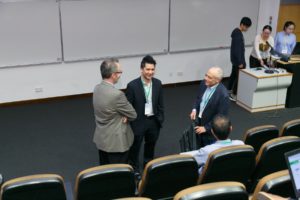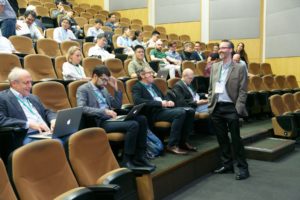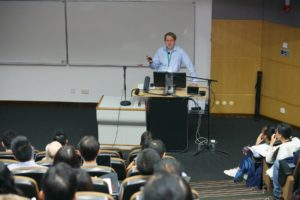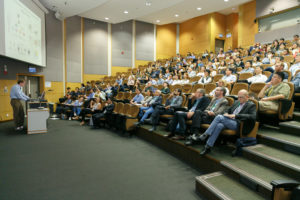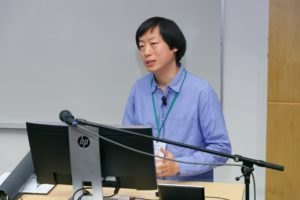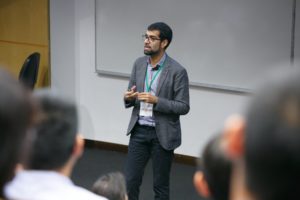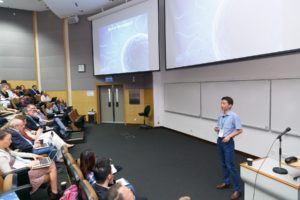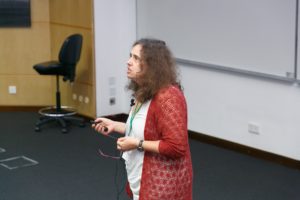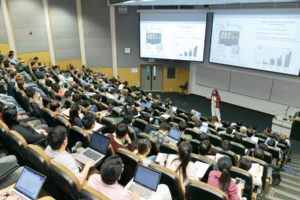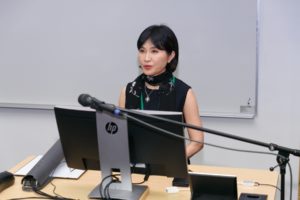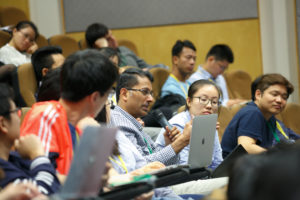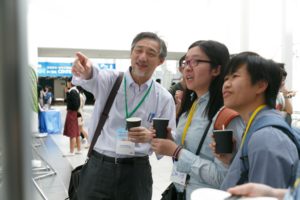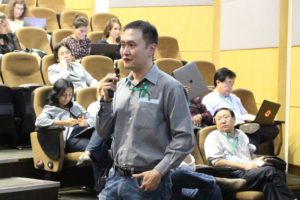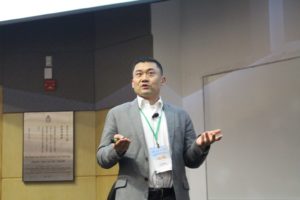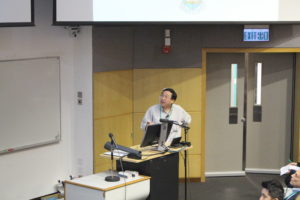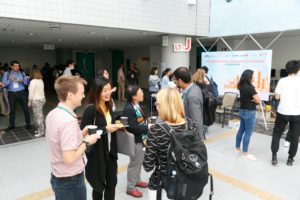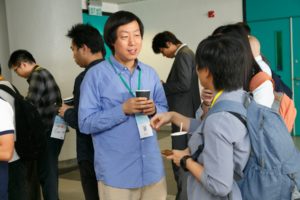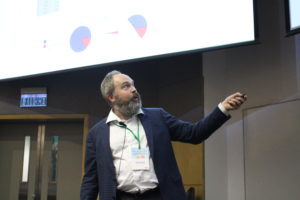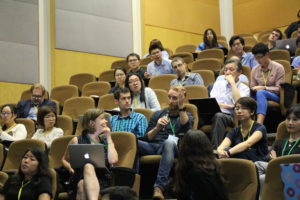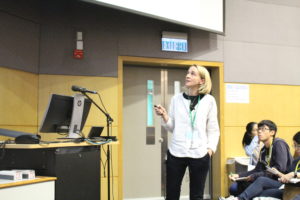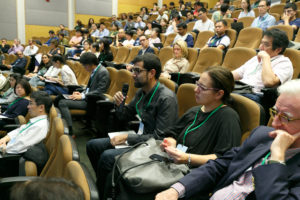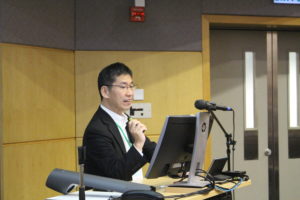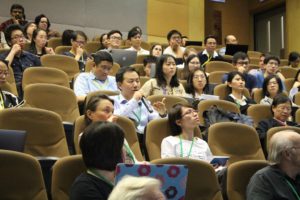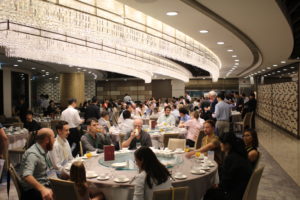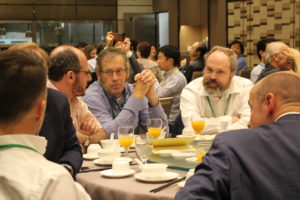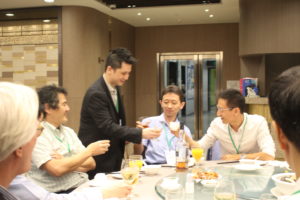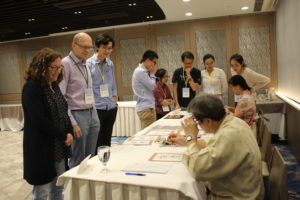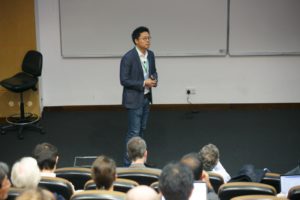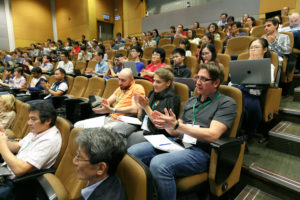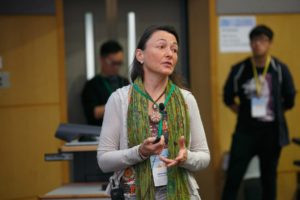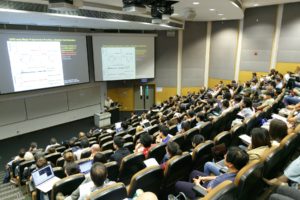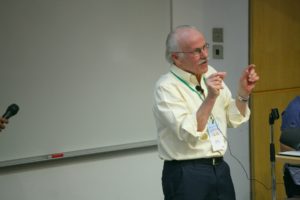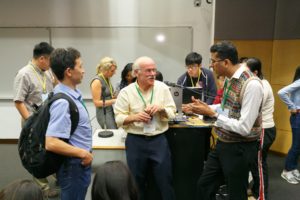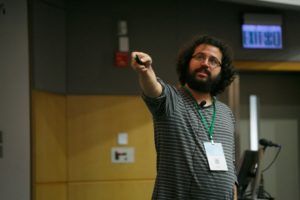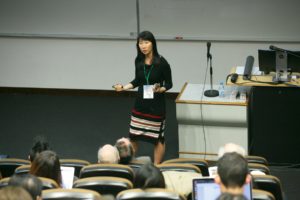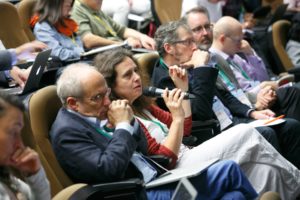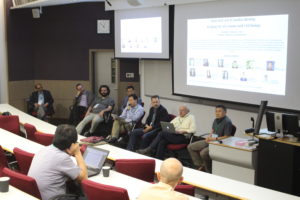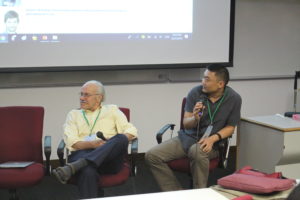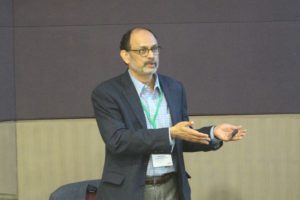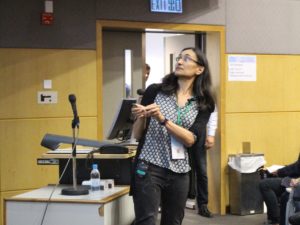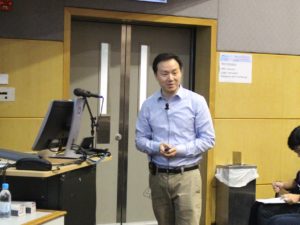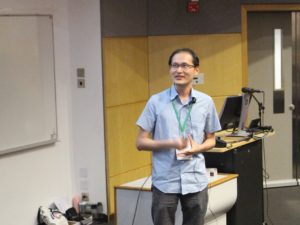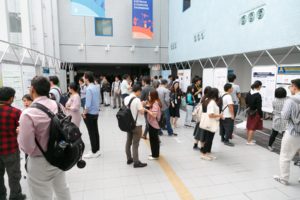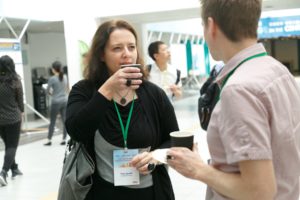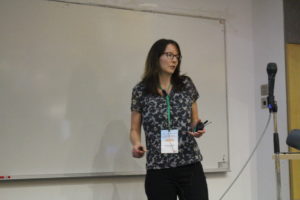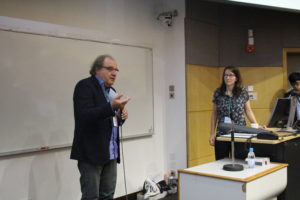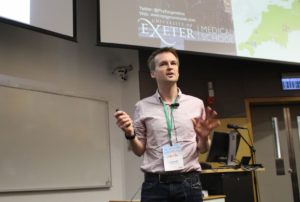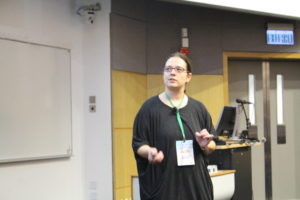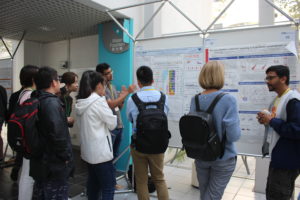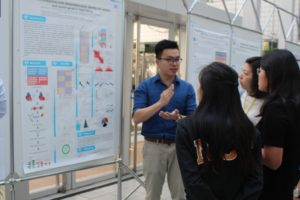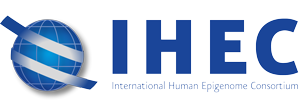IHEC 2018
Highlights:
IHEC 2018
Hong Kong
The International Human Epigenome Consortium Annual Meeting and Science Days
Oct 26 – 28, 2018

Local organizing committee: EpiHK
The Hong Kong Epigenomics Project (EpiHK), consisting of 15 groups of scientists in institutions across Hong Kong, was established in 2016 with a mission to build a cohesive community centered on epigenomics research. EpiHK have then been elected as a member of IHEC and selected to host the 2018 IHEC annual meeting – the 2018 International Human Epigenome Consortium (IHEC) Annual Meeting and Science Days was held in HKUST on October 26-28, 2018.
The program started off with an internal meeting day for IHEC members around the world to meet and discuss about IHEC policies, then followed by two days of intensive scientific talks.
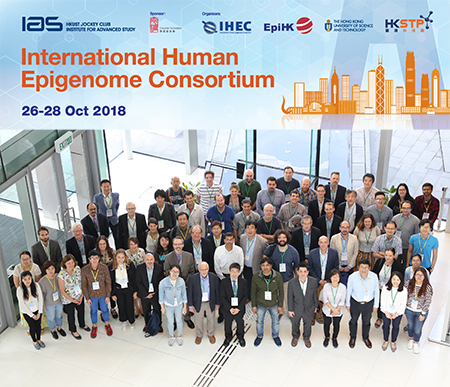
Day 1 (Oct 26): Internal IHEC Annual Meeting
On the internal IHEC day, members from North America, EU and other Asian regions joined together for committee meetings in various areas (assay standards and quality control, bioethics, data ecosystem / integrative analysis and scientific communication) and to plan for IHEC’s future directions.
Prof. Martin Hirst, chair of the Assay Standards and Quality Control group, presented updates on the working group’s progress on defining assays required for reference epigenomes, as well as standardizing protocols and quality control metrics and analysis pipelines. Simultaneously in another room, Prof. Yann Joly chaired the Bioethics working group, covering recent work and publications about epigenetic science, ethics and policy.
The Data Ecosystem and Integrative Analysis group discussion included Prof. Guillaume Bourque and David Bujold displaying new features on the IHEC Data Portal and highlighting the IHEC Tools page, as well as the progress on defining methods and standards for sharing of epigenomics data. For the Communications working group, Stephanie Weber showed the communication activities which happened over the past year, including using social media statistics to demonstrate how the IHEC achievements have been communicated effectively to the rest of the research community.
During the country updates, representatives from research groups all over the world presented the progress updates for their individual epigenetics projects. Updates on projects from Canada, EU, Germany, Japan, Singapore, South Korea and USA; and their future research plans were discussed. EpiHK, the local organizing host of this meeting, has just been established over the past year and initial developments have been demonstrated to other IHEC members. This meeting has also introduced and welcomed the Epigenetics User Group in New Zealand as the newest member of IHEC.
The internal IHEC meeting day finished with a delightful seafood dinner in Sai Kung – the village noted locally for its beautiful waterfront promenade and seafood restaurants.

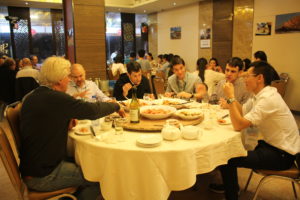
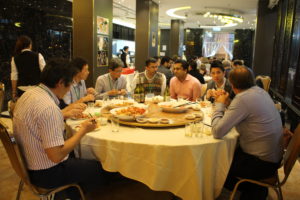

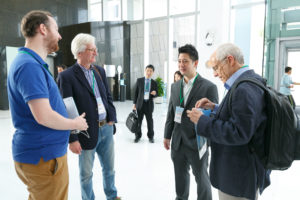
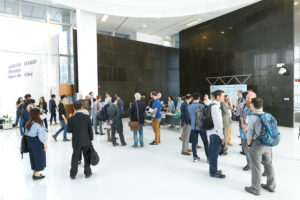
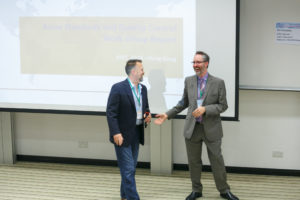
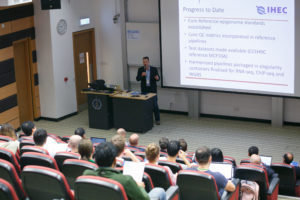
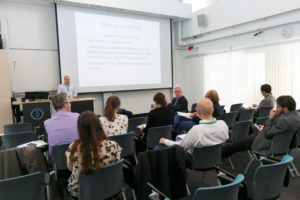
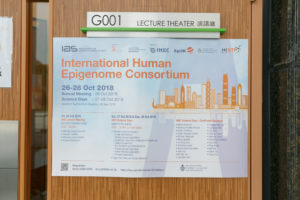
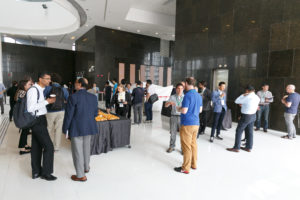
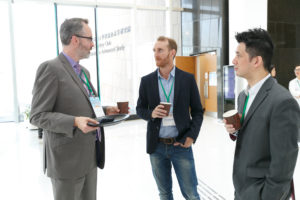
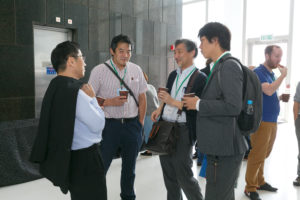
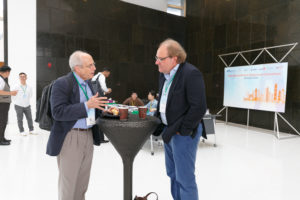
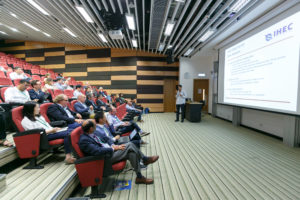
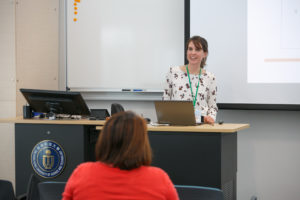
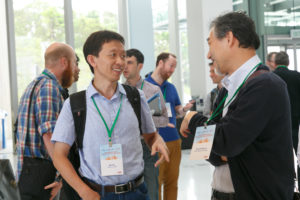
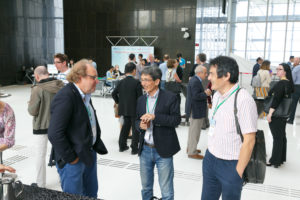
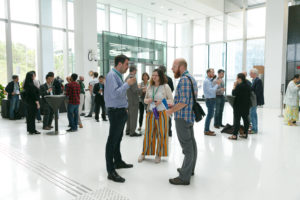
Day 2-3 (Oct 27-28): IHEC Science Days
For the IHEC 2018 Science Days, we invited nine renowned speakers from North America, five from Europe and seven from Asian regions to present on their recent research establishments. On the two Science Days, there were 23 invited talks, over 20 contributed talks and over 50 poster presentations by overseas and local researchers. The scientific talks covered research areas in: single cell analyses, developmental/cancer/computational epigenetics, epigenetic regulation of repetitive sequences, transcriptional regulation and 3D Chromatin and RNA structure.
Highlights from some of our invited talks:
Single cell analyses:
Prof. William Greenleaf from Stanford University talked about his work on single-cell chromatin accessibility landscape for exploring the physical genome – provided a framework for exploring complex regulatory dynamics in human tissue. Prof. Fuchou Tang from Peking University introduced his work on decoding the gene regulation network in human germline cells using single-cell RNA-seq and DNA methylome sequencing analyses. Prof. Gonçalo Castelo-Branco from Karolinska Institutet presented to the meeting his discoveries on heterogeneity of the oligodendrocyte lineage in development and disease – insights from single-cell omics approaches.
Developmental epigenetics:
Prof. Wei Xie from Tsinghua University explored the conservation and divergence of chromatin reprogramming in early vertebrate development across different species, and progress in understanding epigenetic inheritance during animal embryogenesis. Prof. Anne Ferguson-Smith from University of Cambridge talked about her work on a genome-wide systematic screen for novel endogenous metastable epialleles, which provided useful insights into the impact of variable silencing of the repeat genome on epigenetic inheritance. Prof. Li-Jung Juan from Academia Sinica presented her research on how N-α-acetyltransferase 10 protein crosstalks with DNA methylation in developmental control, especially in adipogenesis and neuronal function.
Epigenetic regulation of repetitive sequences:
Prof. Jonathan Loh from A*STAR Institute of Molecular and Cell Biology analyzed single-cell chromatin accessibility landscape in cells undergoing reprogramming and demonstrated the dynamic switching of enhancers’ activities. Prof. Ting Wang from Washington University discussed about advances in NGS platforms and tools allowing examination into regulatory roles of transposable elements in normal and cancer epigenomes. Prof. Pentao Liu from the University of Hong Kong shared about his work on expanded potential stem cells of mammals – producing new tools for investigating embryonic development and different venues for translational research in genomics and regenerative medicine.
Developmental and cancer epigenetics:
Dr. Michael Taylor from the Arthur and Sonia Labatt Brain Tumour Research Centre talked about cell lineage and timing for the origin for childhood posterior fossa tumors, demonstrating the importance of epigenetics in childhood brain cancers. Prof. Marjorie Brand from the Ottawa Hospital Research Institute discussed about the role of transcription factors and epigenetic enzymes in hematopoiesis and leukemogenesis. Prof. Toshikazu Ushijima from the Japan National Cancer Center Research Institute presented his research on how the coexistence of Tet repression and increased Dnmt activity may underlie aberrant DNA methylation in the development of various human disorders.
The first day of science talks ended with our conference dinner at the China Garden Restaurant in HKUST. The guests enjoyed the food and the traditional Chinese culture performances: Chinese rainbow calligraphy, Chinese knotting and Flour doll making.
Transcriptional regulation:
On the second day, Dr. Jay Shin from the RIKEN Center for Integrative Medical Sciences started us off with his talk on functional elucidation of non coding regulatory elements, including the next FANTOM (Functional Annotation of the Mouse/Mammalian Genome) and pipeline for analyzing functional lncRNAs. Prof. Isabelle Mansuy from University of Zurich presented her discoveries of how epigenetic processes contribute to the impact of negative environmental exposure in early life on adult behaviour and physiology, and its inheritance across generations. Prof. John Lis from Cornell University shared with us his work and insights into chromatin modification uncovered by mapping engaged RNA polymerases.
3D chromatin and RNA structure:
Prof. Erez Lieberman-Aiden from Baylor College of Medicine described his work developing HiC and in-situ HiC, making it possible to construct haploid and diploid maps of cell types and revealing features of genome folding in 3D. Prof. Yue Wan talked about her work on genome organization of dengue and Zika viruses, studied through high-throughput RNA secondary structure and pair-wise interactome mapping.
4D Nucleome Workshop:
Discussion was organized by Dr. Ananda Roy and Prof. Sheng Zhong, aimed to introduce the 4DN Common Fund Program and its resources to the IHEC community, and solicit comments and feedback on the NIH program.
Computational epigenetics:
Prof. Christina Leslie from Memorial Sloan Kettering Cancer Center shared with us her work on decoding epigenetic programs in differentiation and disease using computation analysis of chromatin accessibility and gene expression data. Prof. Feng Yue from Pennsylvania State University analysed germline non-coding variant and showed its impact on oncogene activation epigenetic regulation and 3D genome reprogramming. Prof. Kevin Yip from the Chinese University of Hong Kong presented his work on understanding transcriptional regulation by mining epigenomics data – identifying common patterns both across different genomic regions and different cell and tissue types.
Disease epigenetics:
Prof. Karen Conneely from Emory University talked about her work on using integrated data on DNA methylation and gene expression in human blood cells together with results from a large well-powered study to investigate human aging. Prof. Jonathan Mill from University of Exeter described his work on epigenomic trajectories to neuropsychiatric and neurodegenerative diseases, focusing on dynamic patterns of DNA modifications across human brain development. Prof. Maja Jagodic from Karolinska Institutet presented her work on the relationship between epigenetic mechanisms, especially DNA methylation, and the pathogenesis of Multiple Sclerosis.
Wrapping up... and looking ahead!
The program had over 240 registered participants, with at least one third being oversea guests. The participants enjoyed the excellent event in terms of scientific value, with high quality of talks and wonderful interactions with other participants.
This IHEC program had, as intended, provided a rare opportunity for local scientists and trainees from different institutions to hear directly from distinguished researchers in the field of epigenetics. By bringing world-renowned scientists to Hong Kong to share their newest stories, the local researchers benefited greatly from the rich update of technological advances in the field.
We would like to thank IAS and all the volunteers for their excellent support to the local organizing committee on the program coordination and arrangements.
We wrapped up this year’s IHEC event, three days full of fascinating science and active discussions, by looking forward to the next exciting annual meeting in Nov 2019!
IHEC 2019
Nov 17-20, 2019
The Rimrock Resort, Banff, Alberta, Canada
SAVE THE DATE!

